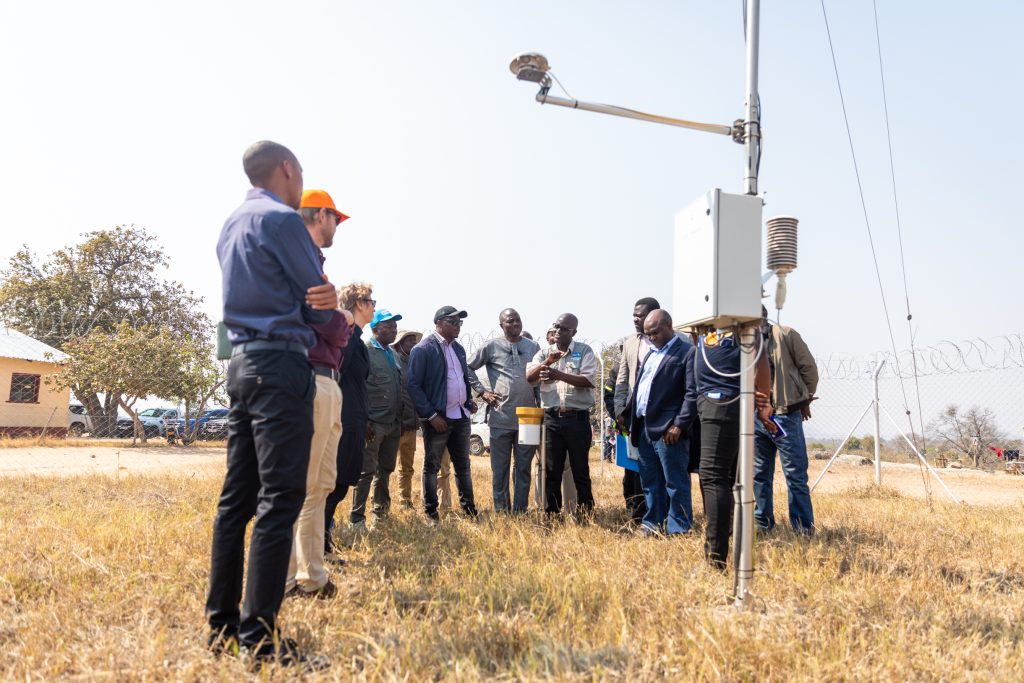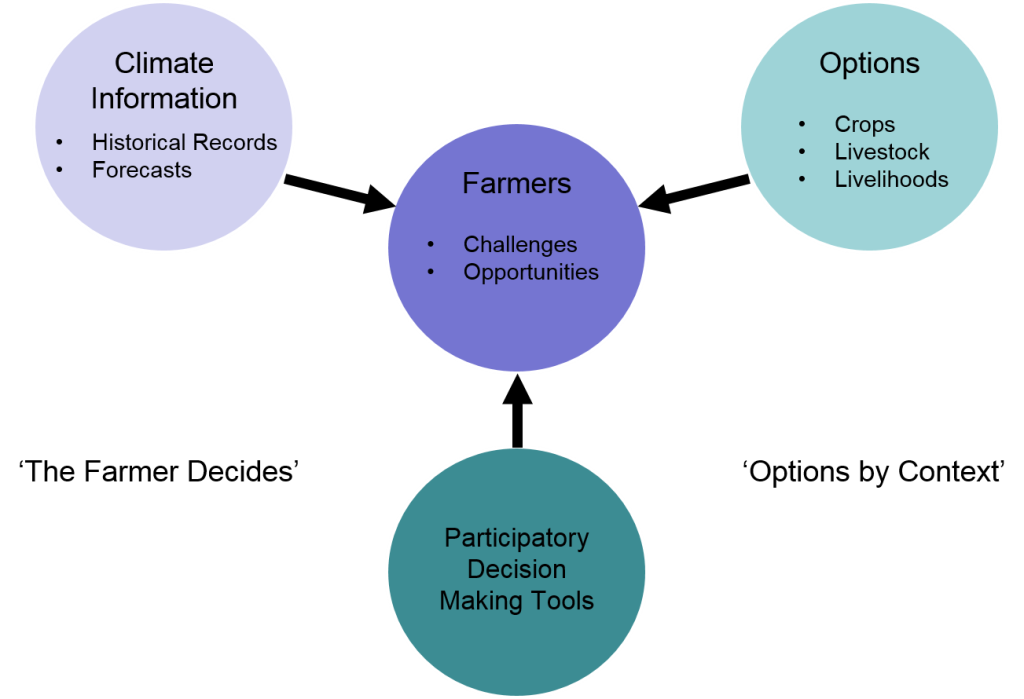
In the ever-changing climate of southern Zimbabwe, smallholder farmers face increasing challenges. However, a revolutionary approach, Participatory Integrated Climate Services for Agriculture (PICSA), is transforming how they adapt and thrive.
PICSA is a participatory approach to climate services and agricultural extension, originally developed by researchers at the University of Reading in the United Kingdom. By combining historical climate data, seasonal forecasts, and local farming knowledge, PICSA equips farmers with the power to make informed decisions tailored to their specific environments.
A Game-Changer in Climate-Resilient Farming
The Climate Resilient Livelihoods (CRL) project is leading the rollout of PICSA, integrating it into Farmer Field Schools (FFS) to promote Climate-Resilient Agriculture. This initiative ensures that farmers receive not only information but also the tools and training needed to apply it effectively. Cumulatively the project trained 58 986 farmers (18 650 males and 40 336 females).
For Sekuru, Charles Moyo, a farmer from Ward 1, Chimanimani, PICSA has validated and enhanced his traditional knowledge.
“It feels good to know that my historical knowledge of climate and weather is being considered when making important farming decisions.”
PICSA recognizes that every region has unique climate conditions. Farmers are trained to interpret localized weather patterns and apply practical decision-making tools for better crop and livestock management.
Sekai Chiora, a lead farmer in Chimanimani, highlighted how PICSA has made her a valuable resource in her community.
“The training was very helpful. Knowing the season’s duration and starting period helped me decide which crops to plant. Even my neighbours, who didn’t attend the training, rely on me for information”, she explained.
From Training to Transformation

One of the standout tools in the PICSA taining is the Resource Allocation Map (RAMS). This participatory exercise helps farmers visualize their resources; land, water, labour, and capital, and how best to allocate them for maximum productivity.
For Sekai, this exercise led to an unexpected but impactful realization.
“The RAMS exercise helped me see my farm’s potential. I didn’t realize I had untapped resources. This influenced my decision to keep goats. I also learned that using both manure and mineral fertilizers could significantly improve productivity.”
Beyond improving resource management, PICSA fosters a deeper appreciation for collaborative farming. Sekai reflected on how the process has strengthened family cooperation.
“I now appreciate my children more because they help me take care of the goats, making the work much easier.”
Embracing Climate Information for a Resilient Future
Coping with climate variability is a global challenge for smallholder farmers, but access to accurate climate information is key.
According to Dr. Juliet Gwenzi, Climate Information Services Expert for the project, PICSA has been a game-changer in project districts.
“Since its introduction, farmers have fully embraced PICSA, and its impact is evident in their decision-making.”
By merging science with indigenous knowledge, PICSA is not just a farming tool it’s a lifeline for rural communities, equipping them to make proactive, data-driven decisions for a sustainable future.
The project is partnering with the Meteorological Services Department (MSD) to come up with tailored weather and climate information and advisories. These are then shared with smallholder farmers to inform them of their climate situation.
Currently, 194 000 people are receiving tailored weather forecasts and advisories and in 2024 alone, 34 402 people (17 368 males and 17 034 females) received new weather advisories and early warning information for informed farming decisions.
The CRL project is being supported by the Government of Zimbabwe, the Green Climate Fund, and the United Nations Development Programme to strengthen the resilience of agricultural livelihoods of vulnerable communities, particularly women, in southern Zimbabwe in the face of increasing climate risks and impacts.
This rollout is being implemented in partnership with the UNDP, the World Food Programme (WFP), and the Government of Zimbabwe as an intervention to improve the utility of climate and weather information by farmers in Southern Zimbabwe.
